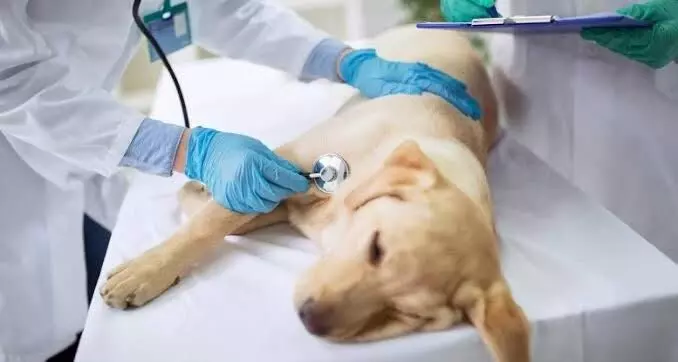
SARS-CoV-2 variant detected in dogs and cats with severe myocarditis
text_fieldsRepresentational purpose only
London: UK scientists have for the first time reported of infection from the Alpha variant in cats and dogs.
The study, published in the Veterinary Record journal, described that two cats and one dog were identified with the variant by means of a positive polymerase chain reaction (PCR) test, while another three pets were found to have antibodies against it two–six weeks after displaying signs of cardiac disease.
All suffered from severe myocarditis — an inflammation of the heart muscle.
Many of these pets' owners had themselves developed respiratory symptoms and tested positive for COVID-19 three–six weeks before their animals became ill.
'Our study reports the first cases of cats and dogs affected by the COVID-19 alpha variant,' said paper author and veterinary cardiologist Luca Ferasin of The Ralph Veterinary Referral Centre.
"We also reported the typical clinical manifestations characterised by severe heart abnormalities, which is a well-recognised complication in people affected by Covid-19 but has never been described in pets before," Ferasin added.
According to the US Centers for Disease Control and Prevention, reports of animals infected with SARS-CoV-2 have been documented around the world.
Most of these animals became infected after contact with people with Covid-19, including owners, caretakers, or others who were in close contact. Animals reported infected include pet cats, dogs, and ferrets; animals in zoos and sanctuaries, including several types of big cats, otters, and non-human primates; Mink; wild white-tailed deer in several US states.
Recent experimental research shows that many mammals like cats, ferrets, fruit bats, hamsters, racoon dogs, and white-tailed deer, besides being infected with the virus, can also spread the infection to other animals of the same species in laboratory settings. However, the risk of animals spreading Covid-19 to people is considered to be low.
"However, Covid-19 infection in pets remains a relatively rare condition and, based on our observations, it seems that the transmission occurs from humans to pets, rather than vice versa," Ferasin said.























